SINGAPORE: Aamir Khan, the Bollywood superstar with a conscience, says his next movie about a small town teenage girl who uses the Internet to become a singing sensation will be much bigger than his last film, which was India’s highest grossing ever.
Khan, 52, plays a sleazy music producer in the film “Secret Superstar” and says he is second lead to teenager Zaira Wasim, playing a schoolgirl who defies her conservative Muslim family to pursue her dream of a singing career.
Khan’s last film “Dangal,” or wrestling pit, was based on the true story of a former wrestler who trains two of his daughters to become champions in the sport. It was the highest grossing movie for Bollywood, as India’s Hindi film industry is known, and was powered by huge collections in China.
“While both are about the empowerment of the girl child, I feel it (Secret Superstar) is a much bigger film,” Khan said in an interview in Singapore ahead of the movie’s release later this month. He and his wife have produced the film.
“While Dangal was about the dream of a father which a daughter fulfils, this is about the hopes and aspirations of a 14-year-old girl from a small town in India. I don’t know what the box office will be but it’s a bigger film than Dangal in what it’s trying to say.”
Three of Khan’s films are in Bollywood’s top four all-time hits. Besides Dangal, these include “PK,” in which he played an alien dealing with religious divisions in India, and “3 Idiots,” about the frailties in India’s education system.
All three have also done well in China, and Khan said he was “very happy with the type of relationship that’s building between me and my audience in this part of the world with each film.”
He also produced and acted in a popular television documentary series on social ills in India called “Satyameva Jayate,” or Truth Alone Triumphs.
That series led him to set up a non-profit to work on a project to ease the shortage of water in the western Indian state of Maharashtra, he said.
Despite the social messages in his movies, Khan said he has no desire to become politician, as some other Bollywood stars have.
“The desire in me to contribute back to society is something I can do very well in the field that I am in,” he said. “I don’t have to join politics. That’s an area I don’t ever want to go into.”
Khan was embroiled in controversy two years ago when he said his Hindu wife had asked him if they should move out of India over concerns about insecurity. Khan later said the family had no plans to leave.
Prime Minister Narendra Modi’s government has been accused of intolerance toward liberal and dissenting views.
Khan said intolerance had not affected his ability to express himself as an actor.
“For me, when I’m making a film, my primary responsibility is to give my audience a good time. Then if it’s giving a message which is important and creative, if it’s changing the way we look at things, great.
“If it’s giving a message which is highly negative, then I would not be a part of it.”
Bollywood icon Aamir Khan says next film will be biggest yet
Bollywood icon Aamir Khan says next film will be biggest yet
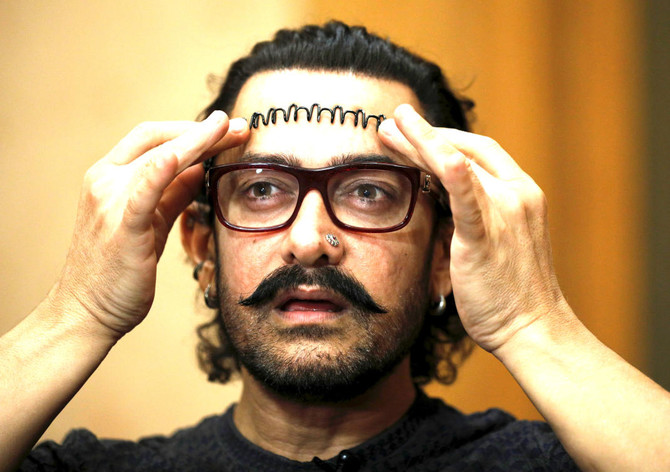
Bangladeshis pray for rain as heatstroke deaths rise
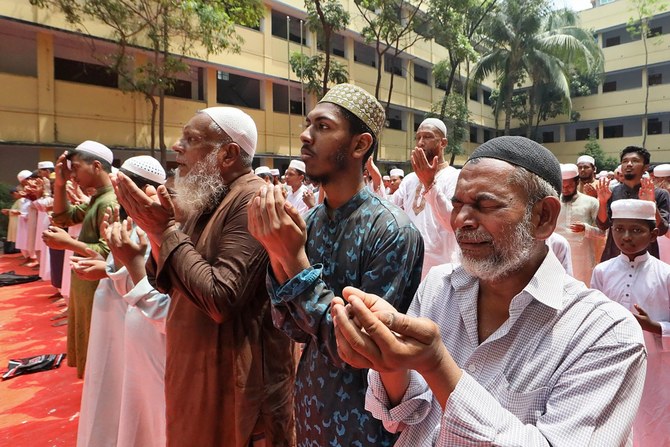
- Country is reaching limit of adaptability to extreme weather, report warns
- Heatwave has shut schools for 33m Bangladeshi children
DHAKA: Thousands of Bangladeshis have gathered in Dhaka to pray for rain in the middle of an extreme hot spell that has put health authorities on heatstroke alert.
The weather across the region is usually hot across the region in April before the summer monsoon season, but this year temperatures have been unusually high, reaching 42 degrees Celsius in parts of Bangladesh.
The country has been on alert since last week, as the punishing heatwave has disrupted agriculture, raised the risk of health complications and forced schools to close for 33 million children.
As the Bangladesh Meteorological Department renewed its warning that the heatwave is likely to persist during the weekend — or until a new notice is issued — thousands of people in Dhaka prayed on Wednesday and Thursday for relief.
They gathered in city mosques and rural fields to pray for rain.
“Special prayers for rain have been organized in many parts of Dhaka on Thursday. Thousands of people joined these prayers ... in addition to that, a special prayer for rain, which Muslims around the world have practiced since the days of the Prophet Muhammad, has taken place in many parts across the country,” Motiur Rahman Akand, spokesperson of the Bangladesh Jamaat-e-Islami, the country’s largest religious political party, which organized the prayers, told Arab News.
“When there is a natural crisis, especially drought, which causes severe suffering for human beings and all other living creatures, people should seek help from the Almighty to get relief from this situation.”
Hospitals were on high alert as at least 20 people died from heatstroke in the past five days alone.
“We have been preparing quite ahead for managing heatwave-related patients ... all the government health facilities are guided not to admit any other patients unless it’s an emergency,” Dr. Moinul Ahsan, director of the hospital wing of the Directorate General of Health Services, told Arab News.
“We are on alert and monitoring the situation closely. Working-class people are suffering most amid this heatwave ... children, pregnant women and the elderly are also most vulnerable in this situation.”
Bangladesh’s geography and low-lying delta topography make it particularly vulnerable to the adverse effects of climate change, and for the past two decades, the country has launched various environmental schemes to mitigate the worsening situation.
Ranking among the 10 countries most prone to climate devastation, Bangladesh has been recognized as a global leader in adaptation and resilience, and in 2005 was one of the first least-developed countries to launch a national adaptation program of action.
A report released in February by the International Centre for Climate Change and Development, a leading research institute in Dhaka, warned that Bangladesh is reaching the limit of its ability to adapt to extreme weather.
Pakistan doubles down on completing Iran gas pipeline despite threat of sanctions
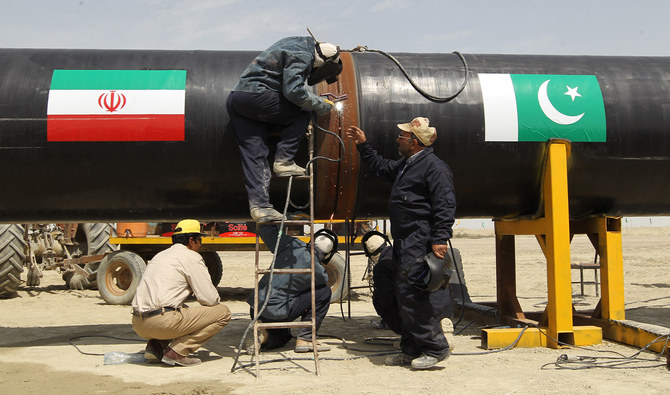
- Major gas pipeline deal has faced delays due to geopolitical issues and international sanctions
- On Wednesday, US warned that countries doing business with Iran faced the “potential risk of sanctions”
ISLAMABAD: Defense Minister Khawaja Asif said on Thursday Pakistan would find a way to complete a major gas pipeline deal with Iran which has faced delays for years due to geopolitical issues and international sanctions.
During a visit by Iranian President Ebrahim Raisi to Pakistan this week, the two nations reiterated the importance of cooperation in the energy domain, including trade in electricity, power transmission lines and the IP Gas Pipeline Project, a joint statement released following the culmination of the visit said.
“We will find a way to complete it,” Asif told reporters when asked if Pakistani officials had discussed the stalled pipeline with Raisi.
In March, Islamabad said it would seek a US sanctions waiver for the pipeline. However, later that week, the US said publicly it did not support the project and cautioned about the risk of sanctions in doing business with Tehran.
On Wednesday, the United States once again warned that countries doing business with Iran faced the “potential risk of sanctions.”
“Just let me say broadly, we advise anyone considering business deals with Iran to be aware of the potential risk of sanctions,” a State Department spokesperson said when asked about the Iranian president’s Pakistan visit and agreements signed. “But ultimately, the government of Pakistan can speak to their own foreign policy pursuits.”
The pipeline deal, signed in 2010, envisaged the supply of 750 million to a billion cubic feet per day of natural gas for 25 years from Iran’s South Pars gas field to Pakistan to meet Pakistan’s rising energy needs. The pipeline was to stretch over 1,900 kilometers (1,180 miles) — 1,150 km within Iran and 781 km within Pakistan.
Tehran says it has already invested $2 billion to construct the pipeline on its side of the border, making it ready to export. Pakistan, however, did not begin construction and shortly after the deal said the project was off the table for the time being, citing international sanctions on Iran as the reason.
Iran’s oil minister at the time responded by saying that Iran carried out its commitments and expects Pakistan to honor its own, adding that Pakistan needs to pick up the pace of work.
In 2014, Pakistan asked for a 10-year extension to build the pipeline, which expires in September this year. Iran can take Pakistan to international court and fine the country. Local media reported that Pakistan can be fined up to $18 billion for not holding up its half of the agreement.
Faced with a potential fine, Pakistan’s caretaker administration earlier this year gave the go ahead in principle to commence plans to build an 80 km segment of the pipeline. In March, Pakistan announced it would seek a sanctions’ waiver.
Washington’s support is crucial for Pakistan as the country looks to sign a new longer term bailout program with the International Monetary Fund (IMF) in coming weeks.
Pakistan, whose domestic and industrial users rely on natural gas for heating and energy needs, is in dire need for cheap gas with its own reserves dwindling fast and LNG deals making supplies expensive amidst already high inflation.
Iran has the world’s second-largest gas reserves after Russia, according to BP’s Statistical Review of World Energy, but sanctions by the West, political turmoil and construction delays have slowed its development as an exporter.
Originally, the deal also involved extending the pipeline to India, but Delhi later dropped out of the project.
With inputs from Reuters
Ahead of feared Rafah invasion, Palestinians mourn bombardment dead
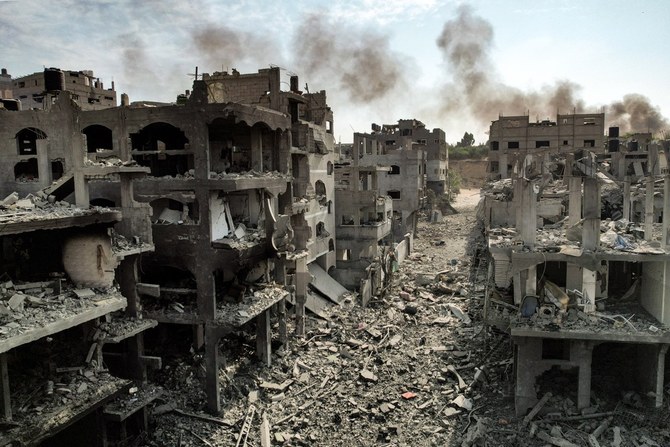
- Aid groups warn any invasion would add to already-catastrophic conditions for civilians
- Government spokesman says Israel ‘moving ahead’ with its operation to go after Hamas in Rafah
GAZA STRIP, Palestinian Territories: Palestinians on Thursday mourned over people killed in Israeli bombardment of Rafah, the southern Gaza city where Israel says it is advancing plans for a ground invasion.
Global concern has mounted over the looming operation against Hamas militants in Rafah, where much of Gaza’s population has sought refuge from more than six months of war in the narrow coastal strip.
Aid groups warn any invasion would add to already-catastrophic conditions for civilians.
Israeli officials have for more than two months vowed to enter Rafah, near the Egyptian border, but even before any ground operation the area has been regularly bombed, including overnight Wednesday-Thursday.
At the city’s Al-Najjar Hospital on Thursday, two men knelt in front of a white body bag in grief, among other mourners gathered at the site.
Elsewhere in the city, Palestinians tried to salvage belongings from the rubble of bombarded buildings.
Israeli government spokesman David Mencer said Israel was “moving ahead” with its operation to go after four Hamas battalions in Rafah.
“They will be attacked,” he said.
The war began with an unprecedented Hamas attack on October 7 that resulted in the deaths of about 1,170 people in Israel, according to an AFP tally of Israeli official figures.
Israel vowed to destroy Hamas, with a retaliatory offensive that has killed at least 34,305 people in Gaza, mostly women and children, according to the Hamas-run territory’s health ministry.
Thursday’s toll included at least 43 more deaths over the previous day.
During their attack militants seized hostages, 129 of whom Israel estimates remain in Gaza, a figure that includes 34 presumed dead.
Hamas on Wednesday released a video of an Israeli-American man who was one of those captured.
Also on Wednesday, US President Joe Biden signed a law authorizing $13 billion in additional military aid to close ally Israel.
Much of that funding is to support the country’s air defenses, which received an unprecedented test this month with Iran’s first-ever direct strike against its foe.
Iran fired more than 300 drones and missiles toward Israel, the Israeli military said, but most were shot down by that country and its allies.
The Iranian barrage followed what it said was a deadly Israeli strike against Tehran’s embassy consular annex in Syria.
The US legislation also included $1 billion in humanitarian aid for Gaza, with Biden demanding it reaches reach Palestinians “without delay.”
The United Nations has warned of imminent famine and “access constraints” on the delivery of humanitarian assistance.
Germany said it would resume cooperation with the main aid agency in Gaza, the UN’s agency for Palestine refugees, or UNRWA, after an independent review found Israel had not yet provided evidence for its allegations that its staff belonged to “terrorist” groups.
Regional tensions remain high as the Gaza war has led to violence between Israel and Iran’s proxies and allies.
Israel has struck increasingly deeper into Lebanon, while the Iran-backed Hezbollah movement has stepped up rocket fire and drone attacks on Israeli military bases across the border.
The violence has fueled fears of all-out conflict between Hezbollah and Israel, which last went to war in 2006.
On Thursday Lebanese state media and a Hezbollah source said one person was wounded in an Israeli drone attack on a fuel truck near Baalbek, the latest such incident away from the southern border.
In other regional fallout, US-led coalition forces shot down an anti-ship missile launched by Yemen’s Iran-backed Houthi rebels, American authorities said on Thursday.
The Israeli military on Thursday said its aircraft had struck more than 30 Hamas targets across Gaza over the previous day.
Witnesses reported clashes between militants and Israeli troops near the Nuseirat refugee camp in central Gaza, as the world’s attention is increasingly focused further south, on Rafah.
Netanyahu in early April gave no details but said “there is a date” for the Rafah operation, over which the United States and others have expressed grave concern because of the concentration of civilians there.
Citing Egyptian officials briefed on Israeli plans, The Wall Street Journal has said Israel was planning to move civilians to nearby Khan Yunis over a period of two to three weeks, before gradually sending in troops.
The hostage in the video released on Hamas’s official Telegram account identified himself as Hersh Goldberg-Polin, 23.
In the video, the authenticity of which AFP has not been able to independently verify, Goldberg-Polin was missing a hand, a wound he suffered during his capture.
In an apparent reference to Jewish Passover which began this week, Goldberg-Polin, likely speaking under duress, told Israeli government members that “while you sit and have holiday meals with your families, think of us, the hostages, who are still here in hell.”
Hostage supporters and anti-government demonstrators have intensified protests — including again on Wednesday night in Jerusalem — for the government to reach a deal that would free the captives, accusing Netanyahu of prolonging the war.
The European Union, the UN rights office and the White House have called for a probe into mass graves found at Gaza’s two biggest hospitals after Israeli raids.
“We want answers,” US National Security Adviser Jake Sullivan said on Wednesday. “We want to see this thoroughly and transparently investigated.”
Israel has repeatedly targeted hospitals during the war, accusing Hamas of using them as command centers and to hold hostages. Hamas denies the accusations.
Gaza’s Civil Defense agency said nearly 340 bodies were uncovered at Nasser Hospital in Khan Yunis city.
Israeli army spokesman Major Nadav Shoshani said on X that “the grave in question was dug — by Gazans — a few months ago.”
The Israeli army acknowledged that “corpses buried by Palestinians” had been examined by soldiers searching for hostages, but did not directly address allegations that Israeli troops were behind the killings.
Pakistan refiners, fuel station owners oppose price deregulation, fear business closures
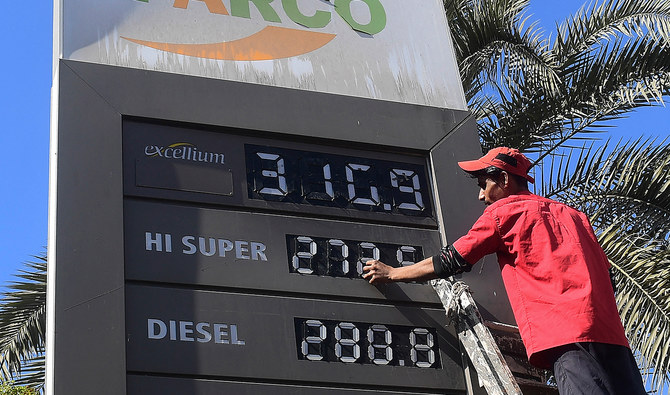
- Petroleum dealers say government wants to avoid public criticism and shift the burden of high oil prices to consumers
- Oil refineries also opposed deregulation earlier this week, saying it would put their $6 billion investment at risk
KARACHI: After Pakistan’s oil refineries, petroleum dealers announced their decision to oppose the deregulation of fuel prices in the country on Thursday, saying the move would adversely impact their businesses and lead to their closure.
The Oil and Gas Regulatory Authority (OGRA) of Pakistan briefed the energy ministry on the possible deregulation of petroleum products on April 17, prompting five of the country’s oil refineries to write a letter in which they described it as complex and critical issue.
The deregulation proposal would empower oil marketing companies to determine fuel prices on the basis of various market forces. Local consumers getting petrol and diesel from places closer to ports and refineries would get relatively cheaper products due to the transportation cost.
“The deregulation is the death warrant for the people and the petroleum industry in the country,” Abdul Sami Khan, Chairman of Pakistan Petroleum Association, said at a media briefing along with other dealers at the Karachi Press Club. “If this is imposed on us, we will be compelled to shut down our businesses.”
The dealers present at the briefing said the deregulation would cause an increase in the prices of petroleum products and make it difficult to maintain the quality of the fuel.
They said giving mandate to oil marketing companies to determine oil prices would be unwise and lead to different market rates.
“The government wants to shift the burden of price hike to people and get rid of the public criticism amid spiraling rates of petroleum products,” Khan added.
He said the smuggled Iranian oil had been openly sold in Pakistan, though it was not refined and damaged engines of vehicles.
He also asked the government to legalize it “in the larger public interest.”
“An agreement should be made to import crude oil from Iran to end smuggling,” Khan suggested. “The crude oil bought from Iran can be refined locally.”
Malik Khuda Buksh, senior leader and founding member of the association, said the deregulation would “create chaos in the market” since everyone would be quoting their own prices.
“Under the current mechanism, the government fixes the prices and no one can charge a single paisa more,” he explained while speaking to Arab News after the news briefing. “When the deregulation takes place, every oil marketing company will give its own price like vegetable and other product sellers, which will lead to further inflation.”
Like refiners, the petroleum dealers also warned that the deregulation of petroleum prices in Pakistan would negatively impact their business.
The letter jointly written by Attock Refinery Limited, Cnergyico PK Limited, National Refinery Limited, Pakistan Refinery Limited and Pak Arab Refinery Limited said the deregulation could jeopardize nearly $6 billion of investment.
The letter maintained it was better to spend money on upgrading the refineries since it would not only result in cleaner and environment-friendly fuels of Euro-V specifications but would also help save precious foreign exchange by substantially increasing local production.
Pakistan women’s great Bismah Maroof retires from international cricket
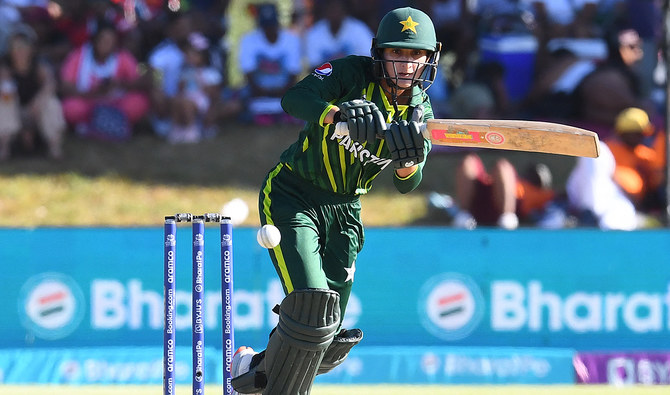
- Maroof, an allrounder, batted left-handed and scored 6,262 runs including 33 half-centuries
- Maroof captained Pakistan in 96 internationals, including at fourth World Cup in 2022
LAHORE: Former Pakistan women’s captain Bismah Maroof retired from international cricket on Thursday after 276 games in an 18-year career.
“I have decided to retire from the game I love the most,” the 32-year-old Maroof said in a statement on Thursday. “It has been an incredible journey, filled with challenges, victories, and unforgettable memories.”
Maroof, an allrounder, batted left-handed and scored 6,262 runs including 33 half-centuries — three ODI scores in the 90s — and bowled right arm leg break and bagged 80 wickets.
She was 15 when she debuted for Pakistan in 2006 in a one-day international against India, and three years later played her first Twenty20 against Ireland.
Maroof took a break in 2021 to give birth to her first child and said she was grateful for a parental policy that extended her career.
“The support from the PCB has been invaluable, particularly in implementing the first ever parental policy for me, which enabled me to represent my country at the highest level while being a mother,” Maroof said.
Maroof captained Pakistan in 96 internationals, including at her fourth Women’s World Cup in 2022 in New Zealand.













